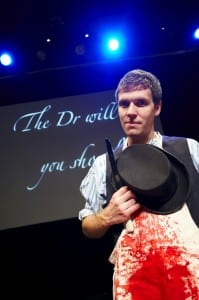Science and the First World War
By Siobhan Pipa, on 9 July 2014
The relationship between science, technology and warfare is a topic I find incredibly intriguing – partially kick-started from taking a module in Science, Warfare and Peace back when I was an undergraduate in UCL Science & Technology Studies.
So, with high hopes I headed down to The Guardian offices to watch the final instalment of UCL’s Lunch Hour Lectures on Tour – given by Professor Jon Agar (UCL Science & Technology Studies), titled Science and the First World War.
Opening with the haunting image of ‘We are making a new world’ by Paul Nash, Professor Agar points out that there is frequently no force so associated with the making of a new world as science.
If there’s one thing I took away from my undergraduate degree, it’s that science, like nearly every other topic in the world, is not an isolated endeavour – there are always outside influences at play.
And there is probably no bigger outside influence than the First World War. Often considered the first ‘total war’, science was driven and transformed by the events of a hundred years ago.
Along with shaping the path science took during this period, the First World War also raised a number of profound and troubling questions about the very nature of science.
Is science a force for construction? Or is it a force of destruction? Does science transcend international boundaries or should science be recruited to further a country’s cause? How should scientists be used during warfare and is there a way to organise science in the most efficient way?
Using some of the most prominent scientists of the First World War, Professor Agar proceeded to examine these themes at a much more personal and intimate level.
 Close
Close





